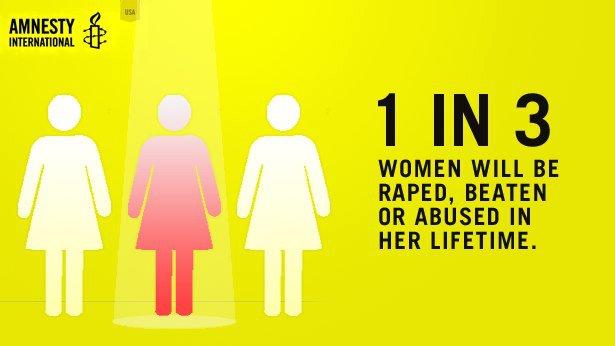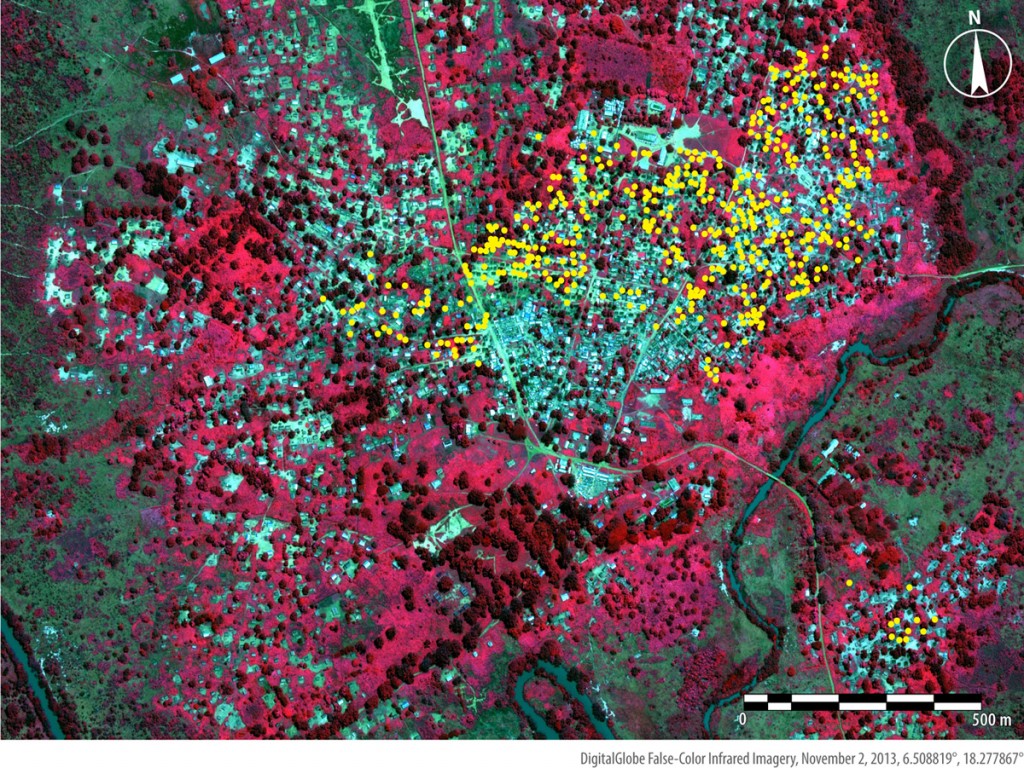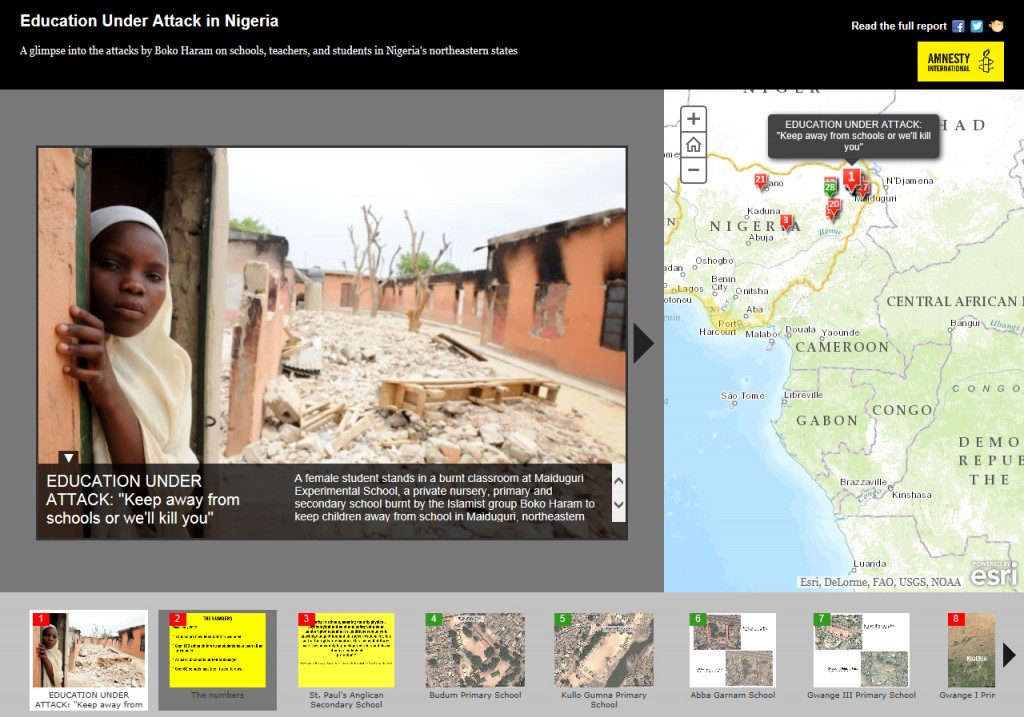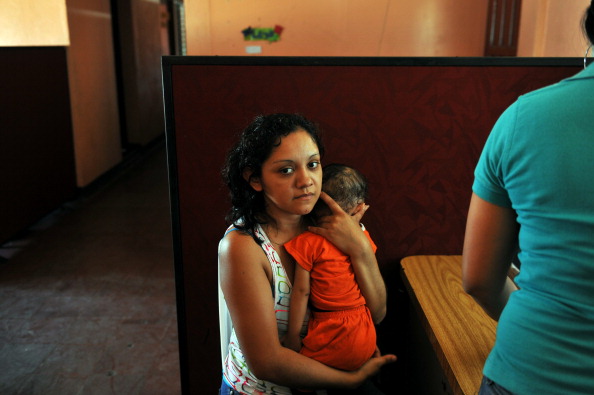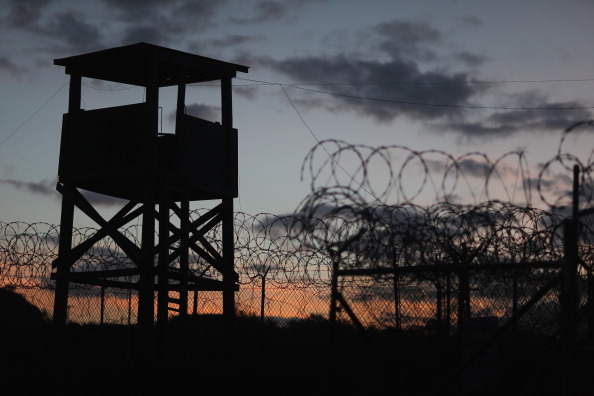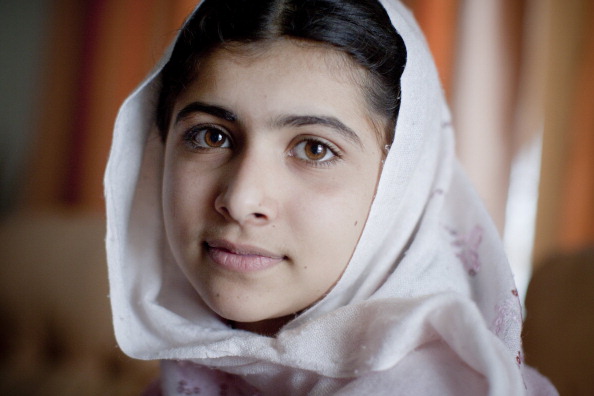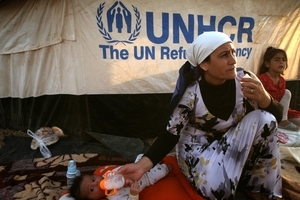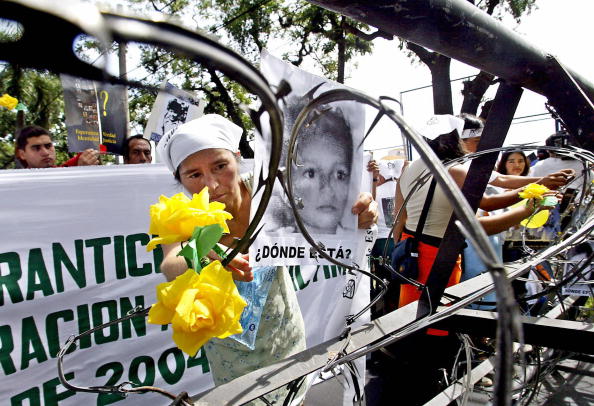
A Salvadorian mother lifts a portrait of her son near the Presidential House as part of a rally of relatives who lost their children during military operations in the last civil war (1980-1992) in San Salvador, El Salvador (Photo Credit: Yuri Cortez/AFP/Getty Images).
The recent attack on the human rights defenders (HRDs) of Pro-Búsqueda brings back painful memories of wartime abuses in El Salvador.
November 16 marked the 24th anniversary of the murder of six Jesuit priests, their housekeeper, and her teenage daughter at the Central American University (UCA) in 1989. This brutal attack shocked the world, creating pressure for the Salvadoran government to finally negotiate an end to the war.
Just two days before this anniversary, however, Salvadorans were given a horrible reminder of the type of wartime atrocities that they had hoped were behind them.
